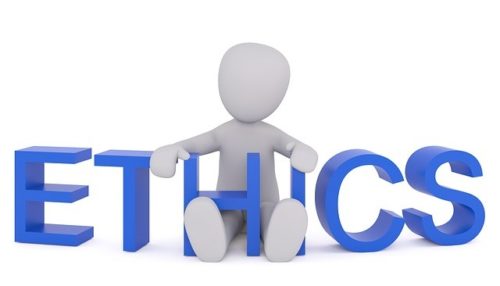-
South Carolina 8 Credit Bundle with 2 Ethics and 1 Substance Abuse Credit All Courses Approved in South Carolina. Bundle Courses Include: NCAA & Name, Image, Likeness – Updates & Anarchy in America! (1.27 Credits) Opening Statement As a Story - 101 (1.07 Credits) Opening Statements As a Story - 102 (1.67 Credits) Closing Arguments (1.78 Credits) Order in the Court: Ethical Interaction With Judges (1.08 Ethics Credits) Effective and Ethical Use of Experts (1.08 Ethics Credits) The Impact Of Internet and Sports Betting for Lawyers (1.02 Substance Abuse Credits)
-
"Shackled to Our Screens: How Technology Has Imprisoned the Legal Profession"
-
Second Circuit Court of Appeals: Practice and Procedure In this compelling and timely CLE program, attorney, Jacquelyn Mouquin, presents “Second Circuit Court of Appeals: Practice and Procedure”. Attorney Mouquin begins the program discussing basic terms, jurisdiction, and admission to the court. The program continues to cover preliminary forms, briefing scheduling, and formats of briefs. Attorney Mouquin also goes in depth explaining oral arguments, motions, and petitions. The program concludes and with the difference between civil and criminal appeals. This course is for any attorney wishing to know more about the Second Circuit Court of Appeals.
-
Psychosocial Evaluations and Consultation in Civil Litigation: Strategies to Understand and Humanize the ClientMany civil litigation attorneys (plaintiff and defense), particularly in the fields of personal injury and medical malpractice, struggle to understand the harm or injury their clients have suffered. In this course, forensic expert Mark Silver provides for the lawyer the psychosocial evaluation as a useful and humanistic tool to better conceptualize and understand the harms that the client has suffered, such that the lawyer can advocate for the client in a more informed and holistic manner with a consideration for a broad range of harms that may require compensation.Learning Objectives:I. Understand a new tool to add to a personal injury (or medical malpractice) practice to evaluate the harms clients have suffered for evaluation purposesII. Identify the possible psychological effects of harm from an injury in a much broader mannerIII. Recognize how to advocate for your client by understanding a broader range of harms
-
Principles for a Successful Jury Trial In this timely and compelling CLE program, attorney, Bernie Brown presents Principles for a Successful Jury Trial. Mr. Brown covers everything from selecting the best jury to examining witnesses, and approaches to successful jury verdict. With Mr. Brown's extensive experience, attorneys will be able to walk into a jury trial with confidence and the skills they need to succeed. Agenda: Preparing for Trial Dealing with Witnesses and Evidence Selecting and dealing with Jurors Opening and Closing Arguments Winning Attitude
-
Preparing Clients for Deposition: An Investment in Performance In this timely and compelling program, attorney, Alan Fanger Presents, “Preparing Clients for Deposition: An Investment in Performance”. Mr. Fanger begins the program with an overview of deposition goals and some client myths. Attorney Fanger continues the program by, systemically, covering the types of clients and how to approach each one. The program continues with general deposition guidelines and the best way to answer deposition questions. Mr. Fanger proceeds to explain the methods of deposition preparation. The program concludes with a discussion on mediation. With Mr. Fanger’s decades of experience, this program is a must for any attorney Agenda:
- Goal of Deposition
- Client Myths
- Types of Clients and Approaches
- General Deposition Guidelines
- Answer Deposition Questions
- Methods of Deposition Preparation
- Meditation
-
Pre-sentence Investigation (PSI) Critique: Mitigation as Counter Strategy in Child-Pornography Cases In this timely, and compelling, CLE program attorney Mark Silver presents “Pre-sentence Investigation (PSI) Critique: Mitigation as Counter Strategy in Child-Pornography Cases”. The program begins with an explanation of what PSI is. The program continues with a discussion on the importance of PSI and what is missing from these investigations. Mr. Silver then presents evaluation tools and mitigation challenges. This program is for any attorney. Agenda:
- What is Pre-Sentence Investigation (PSI)
- Why this PSI is important
- What is missing from the PSI
- Evaluation tools
- Mitigation Challenges
-
Pre-judgment Writs of Attachment / Possession In this timely, and compelling, program, attorney, Craig Stein presents “Pre- judgement Writs of Attachment and Possession”. The program begins with and explanation of attachment and an overview of the statutory framework. The program continues with a discussion on attachment against an individual, recoverable costs, and supporting the application. Mr. Stein then explains the tangible and intangible benefits. The program concludes covering defending attachment applications. This program is a must for any attorney. Agenda
- What is attachment
- Statutory framework
- Attachment against an individual
- Recoverable Costs in the Writ Application
- Ex-Parte Writ
- Supporting the application
- Intangible Benefits
- Tangible Benefits
- Writs of Possession
- Defending Attachment applications
-
Physician Employment Agreements: Problem Areas that can be Landmines
-
Philosophy of a Business Legal Counselor In this timely, and compelling CLE program attorney, Todd Kulkin, presents “Philosophy of a Business Legal Counselor”. The program begins with an overview of business law philosophy and an explanation of various business models. The program continues with an introduction to the popular and effective business models. Mr. Kulkin then provides a discussion of how to determine liability and business intake. The program concludes with the importance of scalability and presenting risk. This program is for any attorney involved in business or has clients who are involved in business. Agenda
- Philosophy of Business Law Corollaries
- Business Models 101
- Introduction to popular business models
- Determining liability from a business model
- Business intake
- The importance of scalability
- Presenting risk
-
Paying for Referrals: A Danger to the Payor and Recipient's Freedom.
-
Overview of the Freedom of Information Act In this timely and compelling CLE program, Attorney, Peter Sorenson presents “Overview of the Freedom of Information Act”. The program begins discussing how to help attorneys - in all fields of practice - learn how to more successfully navigate the FOIA process to better support their clients. Mr. Sorenson continues to explain the phases/steps of the FOIA process and the background and Purpose of FOIA. Mr. Sorenson then covers case law, hypotheticals, and practical tips to increase a positive FOIA request. The program concludes with an overview of the administrative appeal phase, and the judicial review phase. This program is a must for any attorney.


